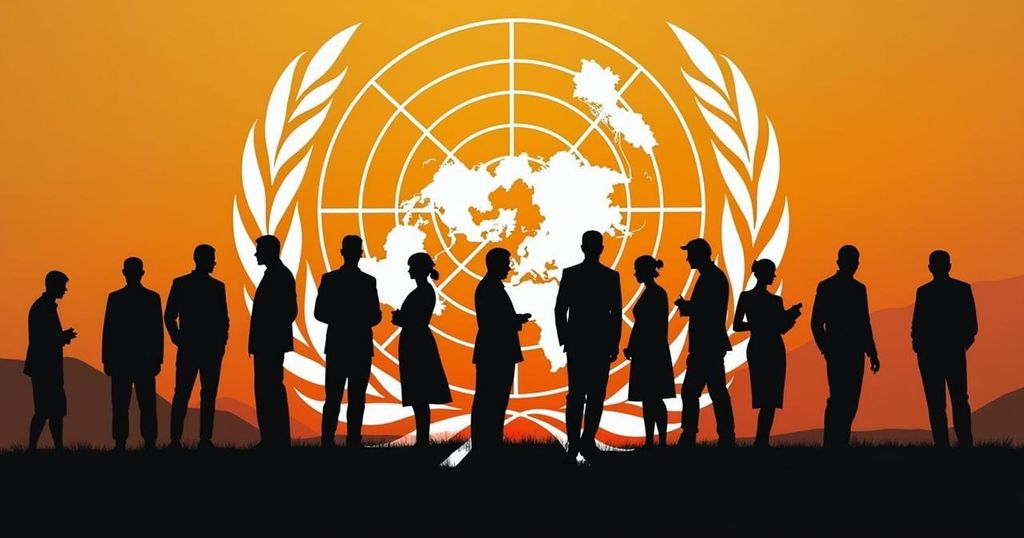Bhutan Supports India’s Bid for Permanent Membership in a Reformed UNSC

Bhutan has voiced its support for India’s bid for permanent membership in a reformed UNSC, emphasizing India’s economic growth and leadership. Prime Minister Tshering Tobgay argued the need for a modernized Security Council that reflects current global realities and also endorsed Japan’s candidacy for a permanent seat.
Bhutan has publicly endorsed India’s aspiration for permanent membership in a reformed United Nations Security Council (UNSC). During a pivotal high-level week at the United Nations, the Prime Minister of Bhutan, Tshering Tobgay, articulated his nation’s support, underscoring India’s significant economic progress and leadership within the Global South as justifications for such recognition. Prime Minister Tobgay acknowledged the support that Bhutan has received from India throughout its development journey, particularly in its recent graduation from the Least Developed Countries (LDC) category. In his remarks at the General Debate of the 79th session of the UN General Assembly, Prime Minister Tobgay emphasized the need for the Security Council to modernize and better reflect contemporary global realities. He described the existing structure of the Security Council as an outdated institution, advocating for reforms that make it more representative and effective. “The United Nations must evolve to meet the realities of today’s world. The Security Council, as it stands, is a relic of the past. We need a Council that reflects the current geopolitical, economic landscape and social realities,” stated Tobgay. Furthermore, Bhutan’s Prime Minister did not limit his endorsement to India alone but also supported Japan in its bid for permanent UNSC membership, recognizing Japan’s role as a significant donor and peacebuilder on the global stage. Tobgay highlighted Bhutan’s hardships and achievements over the previous 52 years, acknowledging the crucial support from various partners, including the United Nations, Japan, and, notably, India. In addressing the broader concerns regarding LDCs, he called attention to the slow pace of graduation from this category, asserting that more must be done to assist these nations in overcoming poverty, inequality, and vulnerability. “This is unacceptable. The international community must intensify its efforts to ensure that no nation is left behind, that all LDC countries achieve graduation,” he urged. He concluded by pointing out that the recently adopted Pact for the Future by the UN Member States lays a solid roadmap for enhancing the lives of the most vulnerable populations worldwide.
This article discusses a crucial moment in international relations, focusing on Bhutan’s endorsement of India’s pursuit of permanent membership in a reformed UNSC. Such changes in the UNSC composition reflect broader geopolitical shifts and highlight countries’ efforts to reshape global governance to align with current realities. Bhutan’s call for reform illustrates the advocacy for a more inclusive international body that acknowledges the contributions of emerging economies like India and Japan. The emphasis on Bhutan’s graduation from LDC status further contextualizes Bhutan’s progress and its partnership with India, illustrating how collaborative efforts can lead to significant developmental milestones. Additionally, the concerns raised about the limited number of countries graduating from the LDC designation reinforce the importance of international support and solidarity to address persistent global inequalities.
In summary, Bhutan’s endorsement of India’s bid for permanent membership in the UNSC signifies not only bilateral solidarity but also a collective call for reform within international institutions to reflect contemporary global dynamics. Prime Minister Tshering Tobgay’s statements underscore the importance of recognizing India’s economic growth and contributions to global governance while also highlighting the necessity of enhancing support for LDCs to ensure that development efforts are inclusive and effective. The challenges faced by LDCs remain significant, and international cooperation will be essential in addressing these issues.
Original Source: www.thehindu.com








